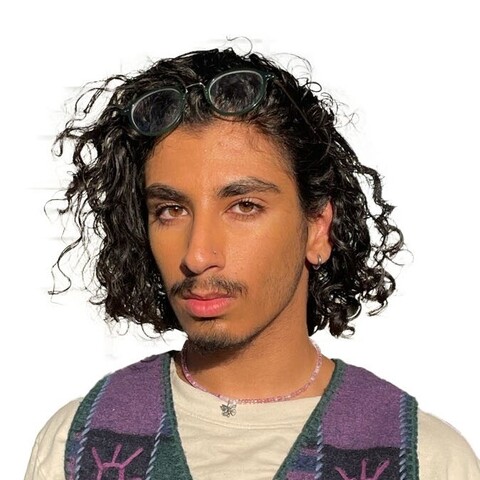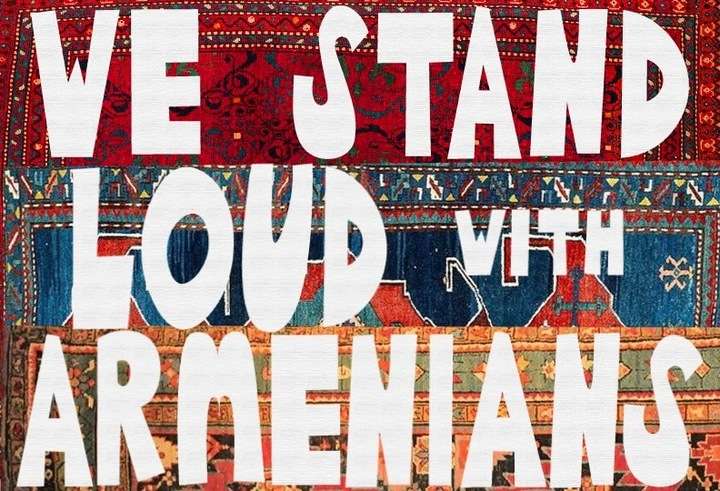“The world has just been going on, but it stopped for the Armenian people … mentally, we’re just not there,” said Suzie Burushyan, an Armenian graduate student at California State University, Los Angeles and a representative of the All-Armenian Student Association.
The Armenian community has been struck by violence, constant mourning, exhaustion and an inability to live life normally. And what have we done as a student community? Nothing.
“I have been feeling like a zombie the past two weeks, and my classmates around me just haven’t really acknowledged that,” Burushyan continued.
Last Friday, about 50 Armenian students protested USC’s public diplomacy event with Turkish Ambassador Hasan Murat Mercan and the Azerbaijani special counsel. USC ignored student requests to cancel the event, despite the Turkish-backed ethnic cleansing of Armenians by Azerbaijani forces in the region Nagorno-Karabakh (called Artsakh by the Armenian community).
In short: USC hosted two countries who’ve been actively providing military support to fund mass murder and displacement of Armenians — Turkey and Azerbaijan. Business as usual for USC.
By 3 p.m. when I circled Annenberg Hall, the Armenian protest group had dwindled. They seemed utterly exhausted. They had spent hours begging for their existence to be respected, demanding that these officials who have a hand in sponsoring these policies not be welcomed to campus.
Why was this genocide not acknowledged in the face of officials meant to represent the interests of these genocidal countries? Depends on who you ask. Armenian students — and those privy to the violent mechanisms of the West — think this was strategic.
“I wouldn’t be surprised if USC was looking just for some money, and overlooked trauma to get to that money,” said Burushyan, who works with Armenian students from USC regularly, in response to the event held by USC.
Others could argue money wasn’t involved. But either way, there is a gross, inhumane irony in USC using violent force against students protesting the ethnic cleansing of their own families.
Armenian protesters were tended with violent shoves from the Department of Public Safety and L.A. Police Department officers. They were silenced through the threat of force. Meanwhile, thousands of their classmates walked by, gazed, spectated and ultimately kept walking.
“Public diplomacy is important because it fosters the perceptions that influence the international attitudes towards a country,” said Christine Almadjian, a USC alum who received a minor in resistance to genocide.
“When you have a country like Turkey that’s promoting Azerbaijan’s actions, supporting them in their efforts and projecting this false image of progress, soundness and good conduct, it’s incredibly problematic,” continued Almadjian, an L.A.-born Armenian who has worked at length for Armenian causes like the Center for Truth and Justice and the All-Armenian Student Association.
This obfuscation of ethnic cleansing and its effects cannot be denied. As students living in the West, as queer, Indigenous or people of color, we cannot be complacent in this ethnic cleansing. Let’s remember USC’s status as a self-proclaimed global influence. Does what we say during a mass genocide not matter? Does it not bear influence?
We must mobilize for an apology from USC during this humanitarian crisis. Acknowledgement is the first step to solidarity with Armenians, something that has been chronically underachieved.
“It especially hurts when I don’t hear my professors or department professors acknowledging it … Solidarity is rare for Armenian people. We don’t get solidarity,” Burushyan said. She also said she believes Armenians should be given accommodations, such as assignment extensions, during this time of grief.
Armenian students have emphasized that it matters that students of all backgrounds are loud about this crisis. To show their support, students should consume and share credible journalism that covers these stories directly from the region.
Interviewees cited Armenian Weekly, Civil Net, @zartonkmedia, @ayfwest, and @theusarmenian on Instagram as credible sources to track the story.
Many Western news outlets have called the Armenian people native to the Artsakh region “separatists.” This illusionary use of wording demonstrates the West’s vested interest in denying the existence of this modern-day ethnic cleansing.
We must all stand in solidarity with our Armenian siblings. I denounce USC for its erasure and heinous dismissal of the genocide that Armenians are experiencing. I, as all students should, pledge to use my skills and abilities to provide support for the Armenian community.
We must disrupt the ignorance of this violence. We will not stand complacent in the ethnic cleansing of Armenians. We must hold space during this time of complex grief as Armenians grapple with immense pain, sadness, isolation and anger concurrently.
As Burushyan put it, “Some people might be able to adapt to life. But, I won’t be the same ever again.”
Arjun Bhargava is a junior inciting discourse on pop, sex, power and art. Their column, “The Girls are Gagged,” runs every other Friday.






